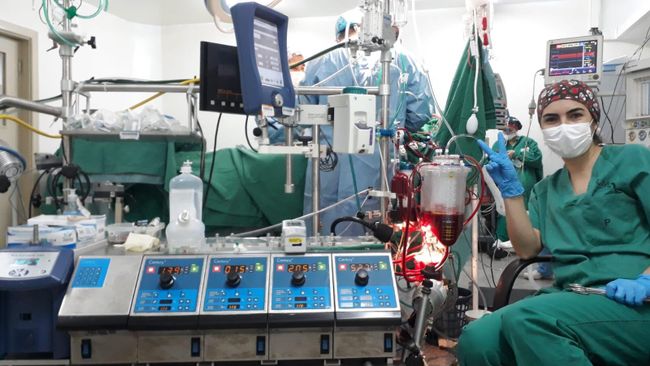Basically free ...
Nəşr edilmişdir: 09.12.2019
Bülletenə abunə olun
After three weeks in the Paraguayan hospital, during which we learned a lot about the life situation of our patients and hospital financing, we would of course like to pass on our knowledge. In Germany, especially as an employee of a hospital, people like to complain about the situation of the healthcare system and the conditions in the clinics. Many people here criticize the so-called "two-tier medicine". This refers to the differences between privately and publicly insured persons, which are evident in preferred treatment, better facilities or shorter waiting times. This criticism seems to be justified. But even though there are differences, health insurance is mandatory in Germany. A few people fall through the system and are uninsured. 0.1% of Germans have no health insurance, in Paraguay it is 73%. According to the Paraguayan government, these 5 million people do not need insurance either. Because in Paraguay, healthcare is basically free. Paraguayans do not have to pay into an insurance scheme based on their salary, as we do, because healthcare is financed by the state through the budget. At first glance, this system sounds like a significant financial relief for Paraguayans, as they do not pay proportionally higher taxes than in other countries. However, the problem here is that the government, as the sole responsible for health in the country, also determines the budget that clinics receive for medical treatment. It also determines which specific procedures will be paid for or not. It is therefore common for certain medications, including antibiotics, or materials for daily personal care to no longer have financial resources. Materials needed for surgery and for special treatments and diagnostics, such as cardiac catheterizations, are generally excluded from state funding. As a result, everything that the Paraguayan state does not pay for must be covered by the patients' relatives, even if their health condition would deteriorate without the treatment or if the patient would die. This in turn means that the patients' relatives are constantly present in our hospital, sometimes sleeping on folding chairs in the courtyard at night. Because if their relative urgently needs a medication or examination that they have to pay for, it could have fatal consequences if no one is on site to buy it. If you experience this kind of healthcare system every day, you can't help but wonder: What are we actually complaining about in Germany?
Bülletenə abunə olun
Cavab verin




